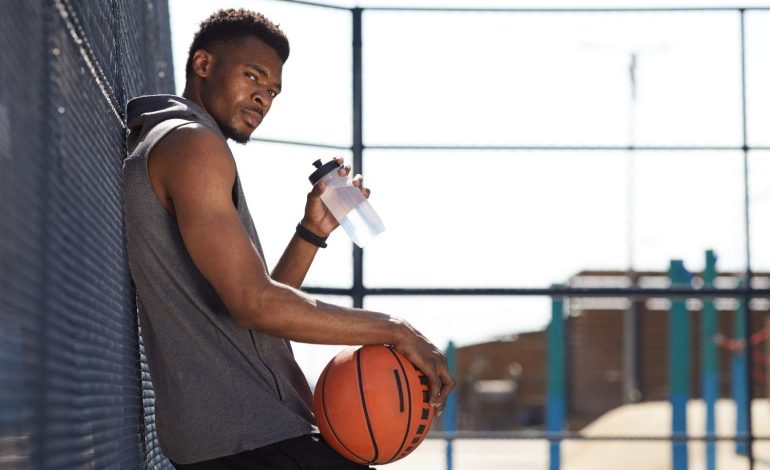Hydration is crucial for any athlete or fitness enthusiast. Efficient hydration can go a long way in influencing your performance, recovery and general health, regardless of whether you are doing some gym exercise, running a marathon or playing your favorite sport. In this blog post, we will discuss some practical hydration tips to help you maintain optimal fluid balance during physical activities, ensuring you perform at your best.
Why Hydration Matters in Sports
Hydration plays a vital role in maintaining various bodily functions, especially during exercise. Water plays a vital role in body temperature regulation, the movement of nutrients and the lubrication of joints. Additionally, being well-hydrated enables one to avoid fatigue, stay focused, and perform physical activities to the best of one’s ability.
On the other hand, dehydration may cause a multitude of problems. It has been suggested that a 2 percent loss of body weight due to fluid loss can impact the performance of athletes. Effects of dehydration encompass exhaustion, lack of coordination and light-headedness, and may not allow you to compete or train successfully. Severe dehydration may cause heat exhaustion and heat stroke, and thus it is vital that the athletes make hydration a priority.
Signs of Dehydration
It is necessary that athletes become aware of symptoms of dehydration. Common symptoms include:
- Thirst: A good sign of your body requires additional fluids.
- Dark Yellow Urine: A symptom that is very likely you are not drinking enough water. Preferably, your urine must be light yellow in color.
- Dry Mouth and Throat: As the parched state is a clear indication of the need to hydrate.
- Fatigue: being dehydrated may result in low levels of energy.
- Dizziness or lightheadedness: This may mean that there is a severe shortage of fluids.
When you feel any of these symptoms, it is better to rehydrate yourself at once in order not to impair your performance and health.
Hydration Tips for Athletes
1. Start Early: Pre-Hydrate
You should not wait till you feel thirsty to drink water. To be well hydrated, it is best to start the process of hydrating several hours before you have a workout or an event. You should take at least 16-20 ounces of water within the hours before your activity. This preventive measure will assist you in making sure that your body is sufficiently hydrated before engaging in exercise. You can set reminders on your phone or even make sure that you have a water bottle with measurements that will help you keep track of what you have consumed.
2. Drink Regularly During Exercise
In case of extended physical exercises, it is best to consume water or a sports drink in 15-20 minutes. This is particularly critical in endurance sports, such as running, cycling or soccer, whereby fluid loss in the form of sweat is high. Regular hydration can also help even short-term workouts, as it would help to keep the performance on the same level and avoid fatigue.
3. Choose the Right Beverages
Though water is most preferable for hydration, consider including sports drinks that have high levels of electrolytes in activities that are intensive or long-term. These beverages assist in replacing the electrolytes that have been lost like sodium and potassium, which are necessary in muscle contraction and hydration equilibrium. Find beverages that contain a good ratio of carbohydrates and electrolytes particularly in activities that are more than an hour.
4. Monitor Your Fluid Intake
Monitor the fluid intake during exercise. The general rule is to consume half your body mass in ounces of water per day (e.g., at 150 pounds, drink 75 ounces of water). Vary this depending on how vigorous and long your activity will be, and the weather conditions (e.g., heat and humidity).
Hydration trackers may also be used to monitor your water usage and have daily targets just by using hydration tracking apps.
5. Listen to Your Body
The hydration requirements of a person are varied and depend on factors like climatic conditions, body size, and exercise level. Look at the signs that your body is showing and respond to them by changing the amount of fluid you drink. When working in a hot climate, you might require taking more fluids to replace more loss of sweat.
6. Rehydrate After Exercise
Post-exercise hydration is crucial for recovery. Aim to drink at least 16-24 ounces of water or a recovery drink after your workout to replenish the fluids lost during exercise. Including protein in your post-workout meal can also aid in recovery by helping to repair muscle tissue. Additionally, consider hydrating with foods that have high water content, such as fruits and vegetables, to boost your hydration levels further.
7. Utilize Hydration Strategies for Different Sports
The hydration strategies in different sports can be different:
- Running: When running for more than an hour, it is good to carry a water bottle or have hydration packs. Sports drinks should be used to replace the energy in the body during a run longer than 90 minutes to ensure that the electrolytes stay balanced.
- Cycling: Have a water bottle on your bike and have it every now and then. Electrolyte drinks would also be good during long-distance rides, particularly during hot seasons.
- Team Sports: Have team members in team sporting activities hydrate prior to, during, and after the games. Use breaks and pauses to make players drink, and use of water stations along the side.
Conclusion
Hydration is important in determining peak performance in sporting activities and good health in general. With these hydration tips, you will make sure that your body is hydrated and is prepared to give its best. It is important to keep in mind that hydration is an individual process; you should pay attention to your body and eliminate or increase the volume of fluid intake according to your requirements.




